Enjoyment of sport and coach education
Research on children's and young people's enjoyment of sports strengthens coach education in Swedish hockey. For several years, researchers at Halmstad University have been collaborating with the Swedish Ice Hockey Association to gain a better understanding of why so many children and young people who play hockey leave the sport prematurely. Researchers and the association have worked together to develop the existing coaching programme in a way that can counteract the dropouts from hockey and thus also increase the societal impact of the research.
Collaboration between researchers and sports associations
Sports and health
Active participation in organised sport promotes the physical and mental health of children and young people, develops social skills and leads to more healthy choices outside of sport. This is particularly important at a time when more and more young people are physically inactive in their daily lives. However, for the positive effects to be as far-reaching as possible, children and young people need to be active in sport for as long as possible.
Children and young people stop playing sports
At the same time, many Swedish sports associations are seeing a trend of more and more children and young people choosing to end their participation in organised sport prematurely.
"For us, it's important not only to understand why they are leaving, but also to find strategies to keep them going."
John Lind, the Swedish Ice Hockey Association
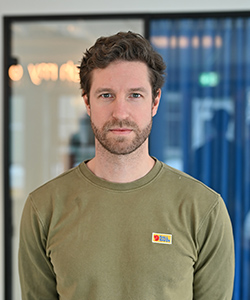
Johan Lind, the Swedish Ice Hockey Association.
"Like many other sports, ice hockey is struggling with the fact that people stop their sporting journey", says John Lind, responsible for development and research at the Swedish Ice Hockey Association, and continues:
"We know from our own statistics that from the time children enter our activities at the age of five or six, over 50 per cent have stopped ten years later. For us, it is important not only to understand why they leave, but also to find strategies to keep them for as long as possible, and to change and improve our activities so that they actually want to stay longer", says John Lind.
How can the trend be reversed?
The research, which is being conducted in collaboration with the Swedish Ice Hockey Association is based on a compilation of other research studies and our own interviews and surveys in team sports, has revealed several factors that increase the risk of children and young people dropping out.
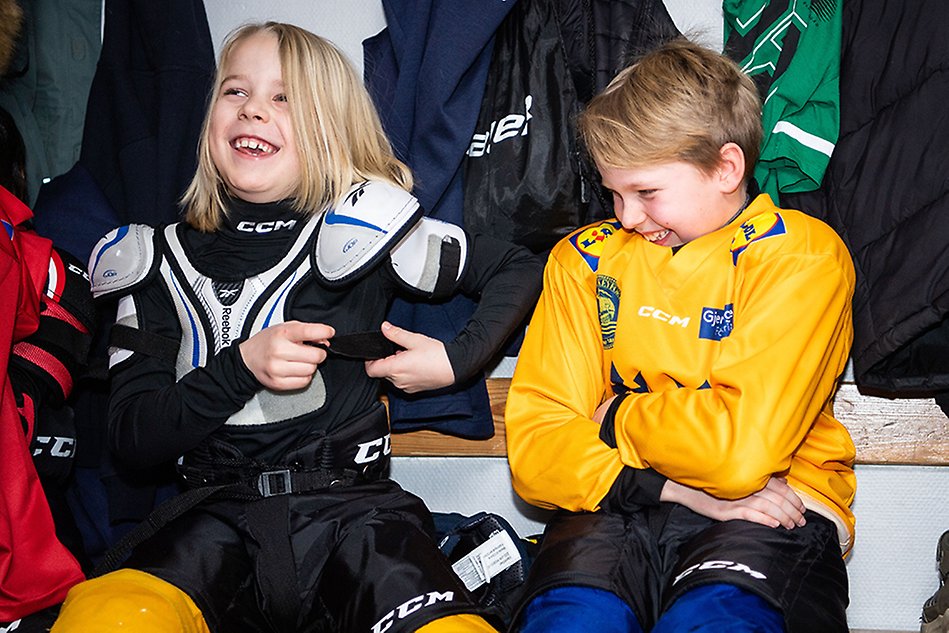
Photo: The Swedish Ice Hockey Association
"We have found that children and young people who leave their sport have a low sense of joy, low levels of inner motivation, experience low support from their coach and feel that they have low competence in their sport", says Andreas Ivarsson, professor of psychology.
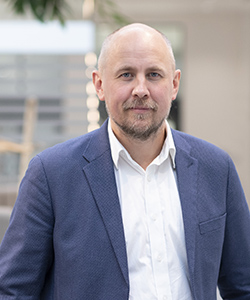
Andreas Ivarsson, Professor.
"We have also asked ourselves what it takes for children and young people to stay in their sport over a longer period and found that the coach's leadership plays a key role in children and young people's motivation, enjoyment and self-esteem", says Andreas Ivarsson.
Evidence-based coach training
As a result of the research and collaboration that has taken place, the coach education is now more evidence-based. It focuses to a greater extent on illustrating and getting the participating coaches to reflect on the factors that are important for getting more children and young people to stay in sport. This is done, for example, by emphasising what children and young people themselves describe as enjoyable about sport.
The coach training also helps the participating coaches to identify and reinforce behaviours that can promote the joy and inner motivation and the feeling of being competent and appreciated among the sport-active children and young people.
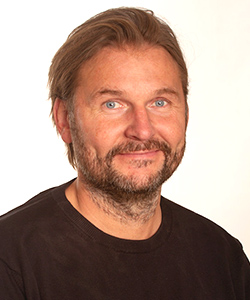
Mats Levander, Piteå HC
4000 coaches have participated
The developed coach training programme is offered all over Sweden and almost 4000 coaches have participated so far. The participants represent around 300 of Sweden's 330 ice hockey clubs that have children's and youth teams.
" What I am particularly passionate about is the leadership parts and how you can strengthen the children's inner motivation with concrete actions. It has also given me a better understanding of how I am perceived as a leader", says Mats Levander, coach and youth leader in Piteå HC.
The research behind it – scientific publications
Back, J., Stenling, A., Solstad, B. E., Svedberg, P., Johnson, U., Ntoumanis, N., Gustafsson, H., & Ivarsson, A. (2022). Psychosocial predictors of drop-out from organized sport: a prospective study in adolescent soccer. International Journal of Environmental Research and Public Health, 19, 16585
Back, J., Johnson, U., Svedberg, P., McCall, A., & Ivarsson, A. (2022). Drop-out from team sport among adolescents: A systematic review and meta-analysis of prospective studies. Psychology of Sport & Exercise, 61, 102205. doi: 10.1016/j.psychsport.2022.102205
Bengtsson, D., Stenling, A., Nygren, J., Ntoumanis, N., & Ivarsson, A. (2023). The effects of interpersonal development programmes with sport coaches and parents on youth athlete outcomes: A systematic review and meta-analysis. Psychology of Sport and Exercise. Manuscript accepted for publication.
Bengtsson, D., Stenling, A., Nygren, J., Ntoumanis, N., & Ivarsson, A. (2024). A cluster-randomized controlled trial to increase coaches’ beliefs and use of need-supportive styles. Manuscript in revision.
Stenling, A., Ivarsson, A., Hassmén, P., & Lindwall, M. (2017). Longitudinal associations between athletes’ controlled motivation, ill-being and perception of controlling coach behaviors: A Bayesian latent growth curve approach. Psychology of Sport and Exercise, 30, 205-214. doi: 10.1016/j.psychsport.2017.03.002
Visek, A. J., Ivarsson, A., Putt, G., & Learner, J. L. (2022). To have fun: What it means and its significance in sport. In M. Toms, R. Jeanes (Eds.). Routledge Handbook of Coaching Children in Sport (pp. 51-61). London: Routledge.
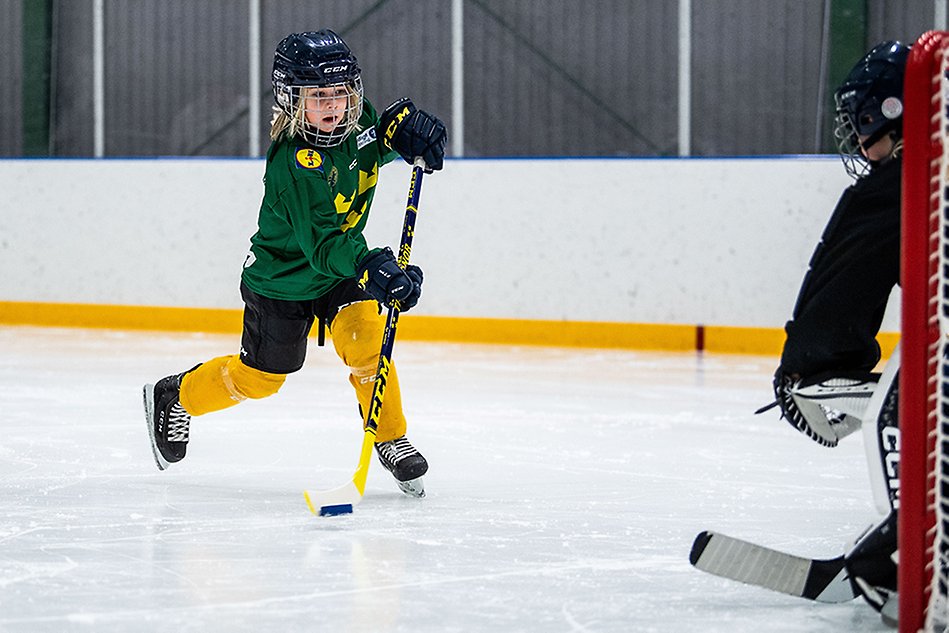
Photo: The Swedish Ice Hockey Association
Relaterat

